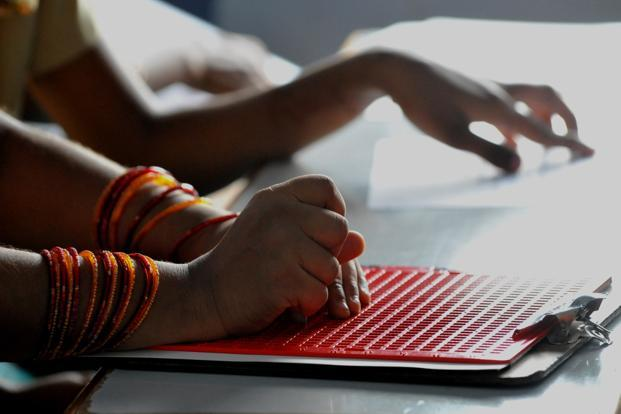WIPO reaches agreement on treaty for blind
-
Access to Knowledge

9 April 2024

The treaty will help distribution of specially formatted books for the blind and visually impaired in different countries by removing copyright law hurdles. Photo: AFP
The article by Pankaj Mishra was published in Livemint on June 26, 2013. Sunil Abraham is quoted.
If officially approved, the treaty will help distribution of specially formatted books for the blind and visually impaired in different countries by removing copyright law hurdles. For instance, US-based Bookshare, which is an online library for people with sight disabilities, has about 200,000 books in its collection, but only about 75,000 of them can be distributed in the UK because of copyright restrictions.
According to the Intellectual Property Watch website that track international policy on the subject, the agreement was reached over the weekend in Marrakesh, Morocco, where a conference to facilitate access to published books for people with sight disabilities is being held.
“The text, which has not been presented to the conference plenary, nor adopted yet, also addresses the issue known as ‘the Berne gap’, which refers to countries which are not part of international treaties governing copyright, such as the Berne Convention for the Protection of Literary and Artistic Works, the World Trade Organization Agreement on Trade-Related Intellectual Property Rights (TRIPS), and the WIPO Copyright Treaty,” the website said in a report on 24 June.
According to the World Health Organisation (WHO), India has 63 million visually impaired people, of whom about 8 million are blind.
Experts such as Sunil Abraham of the Centre for Internet and Society said Indian negotiators played a crucial role in pushing for these amendments.
“India’s copyright law after the latest amendment has a very robust exception for the disabled. It is disability neutral and works neutral. We must applaud the Indian negotiators for exporting Indian best practice to global copyright policy. India continues to be a leader in WIPO when it comes to protecting the public interest and facilitating access to knowledge,” said Abraham.
The treaty, which promotes sharing the books in any format for the blind or visually impaired, is expected to alleviate the “book famine” experienced by many of the WHO-estimated 300 million people suffering from such disability in the world, Intellectual Property Watch said.
“The treaty however is both disability specific, i.e. the visually impaired, and works specific, mostly targeted at ending the book famine,” Abraham said.